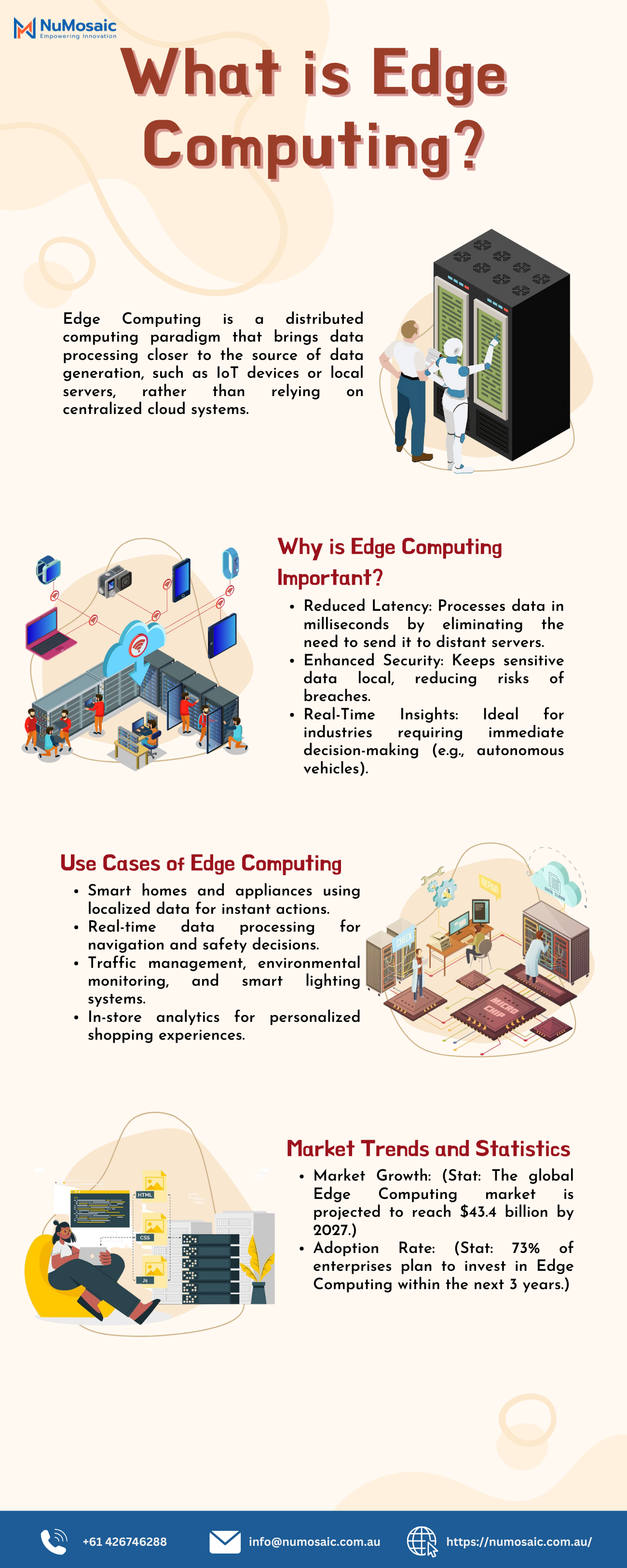Edge computing moves computation and data storage closer to the data source. This reduces latency and optimizes bandwidth.
Edge Computing: Key Benefits and Applications
1. Improves Efficiency and Performance
- By processing data closer to its source, edge computing reduces delays and enhances response times.
- Moreover, it not only optimizes the use of network bandwidth but also enhances overall system performance.
- As a result, this improvement significantly boosts reliability, especially for critical applications.
2. Supports Key Industries
- Autonomous Vehicles: Real-time data processing is essential for safe and smooth operation.
- Smart Cities: Managing infrastructure efficiently relies on reduced delays in data handling.
- Industrial Automation: Quick data processing helps streamline operations and increase productivity.
3. Reduces Data Transfer Over Long Distances
- Processing data locally minimizes the need for sending large amounts of information to remote servers.
- Furthermore, this approach not only saves bandwidth but also significantly enhances responsiveness, which is particularly crucial for time-sensitive tasks.
4. Enhances Privacy and Data Security
- Moreover, localized data handling effectively limits exposure during transmission, thus significantly reducing the risk of breaches.
- In addition, sensitive information stays closer to its source, thereby providing an extra layer of protection.
5. Scales with Growing Technology Needs
- As the number of connected devices increases, this approach adapts to handle higher data volumes effectively.
- It supports the expansion of smart devices and systems across industries.
6. Powers Advanced Applications
- By improving data processing efficiency, edge computing supports modern applications and emerging technologies.
- It plays a crucial role in the growth of connected systems and innovation.
Conclusion:
In summary, adopting this advanced approach significantly enhances system performance, security, and scalability while seamlessly adapting to growing demands. Its capability to meet real-time requirements positions it as a vital solution for industries such as transportation, urban management, automation, healthcare, and beyond, driving innovation and operational excellence.

